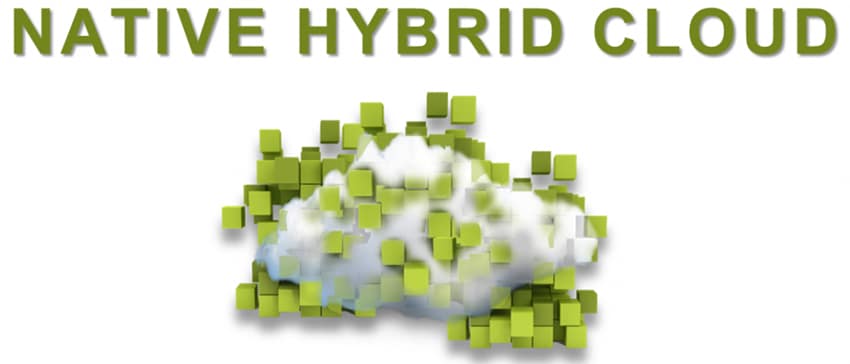EMC has announced Native Hybrid Cloud (NHC), a turnkey platform for both cloud-native application development and deployment. NHC is fully integrated and engineered platform, allowing enterprises to “innovate and scale faster”. EMC adds that it will also improve collaboration between enterprise IT and operations with developers, as it enables rapid application development and delivery, and offers protection, controls and insight to IT.

Native Hybrid Cloud helps enterprises realize the promise of cloud-native applications and DevOps with its seamless experience. EMC indicates the following components, all of which are validated to work together:
- Continuous Innovation Cloud-Native Platform: Native Hybrid Cloud leverages Pivotal Cloud Foundry, which offers capabilities that enhance developer productivity as well as enterprise grade security, scalability, high availability, and operational control. Applications built using Pivotal Cloud Foundry are portable and can elastically run on any private or public cloud.
- Developer and IT Ops Services: Native Hybrid Cloud provides developers services for deploying, scaling, and managing the application life cycle while providing IT the visibility, control, and financial insights by including logging, monitoring, and reporting, showback, application performance, big data analytics, and management and automation through open APIs. NHC also offers an add-on option that produces a comprehensive toolkit for data scientists to perform big data analytics, delivering more differentiated value.
- Turnkey yet flexible choices for On-Premises and Off-Premises IaaS Options: Native Hybrid Cloud is built on the VCE VxRack System 1000, a hyper-converged rack-scale infrastructure that provides a turnkey IaaS experience for application development, deployment, and operations.
- For customer deployments that require an off-premise IaaS option, EMC Native Hybrid Cloud offers day one support for leading public clouds: Virtustream Enterprise Cloud, VMware vCloud Air, Amazon Web Services (AWS), or Microsoft Azure.
Sustained as one product and deployable in days, Native Hybrid Cloud is fully supported end-to-end by EMC. This allows enterprises to reduce the cost, time, complexity and uncertainty that are normally inherent of building, deploying and maintaining a cloud-native solution, and when shifting to DevOps.
Native Hybrid Cloud also increases business agility and promotes innovation through an engineered platform that combines infrastructure elasticity, self-healing, automated application runtime, and extended developer and IT Ops services. Key benefits include:
- Quickly deploy a cloud-native developer platform and infrastructure services composed of Pivotal Cloud Foundry integrated with the EMC and VMware powered IaaS.
- Faster time to market. EMC indicates that you can develop and deploy cloud-native applications in days or weeks rather than months or years due to its extensive developer and IT Ops services and tools.
- Improved DevOps collaboration with its self-service capabilities for developers, allowing IT to retain control and insights.
- Increased developer productivity. Developers can self-provision infrastructure for cloud-native application development.
- Single-call support. EMC provides single-call support for the full solution.
- Reduced complexity. The Native Hybrid Cloud platform is engineered, maintained and sustained as one platform.
Availability
EMC Native Hybrid Cloud with VxRack System with Neutrino Nodes and FLEX Nodes is slated for a Q3, 2016, release.




 Amazon
Amazon